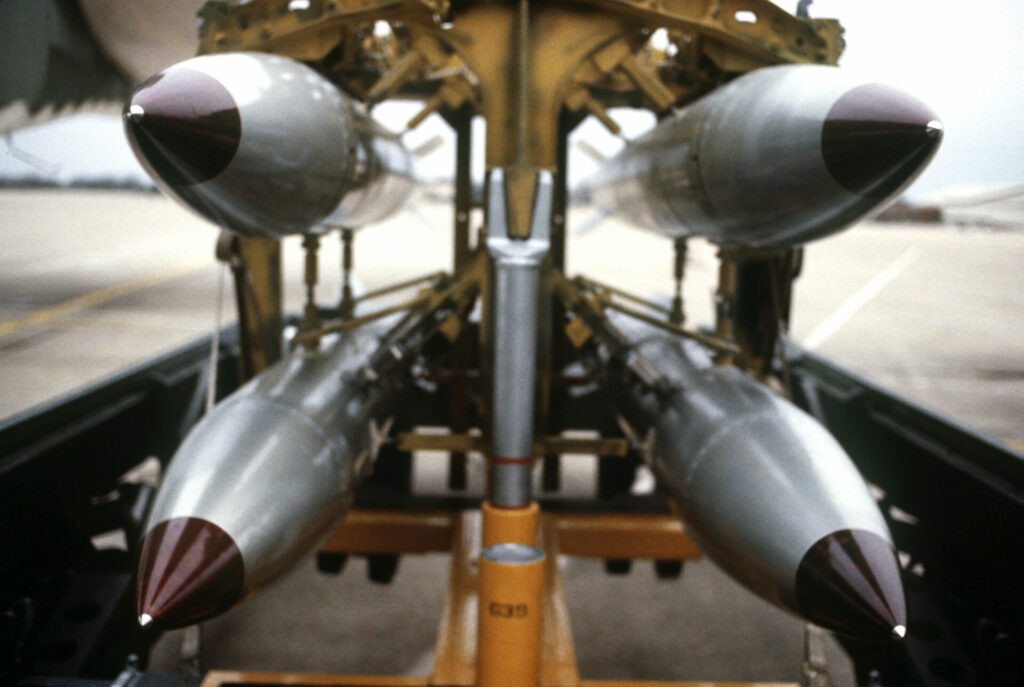The US's deployment of upgraded nuclear missiles to Europe is taking place in the absence of any public scrutiny and risks further increasing the possibility of nuclear conflagration between Russia and the US, according to the International Campaign to Abolish Nuclear Weapons (ICAN).
In a recent press release, ICAN noted that the US's accelerated delivery of upgraded B61-12 warheads to Europe — which was originally reported by Politico in October last year — "represent a new stage of nuclear armament in Europe and help stoke existing tensions and the risk of nuclear escalation." It also condemned the fact that "due to the secrecy around these weapons, there is very little public awareness of them."
ICAN added: "While the Russian Federation has not been shy to make both overt and veiled nuclear threats to shield its ongoing and brutal conventional war against Ukraine, it is important for public understanding to cover not just the deployment of these new weapons but also the humanitarian consequences of any nuclear weapons use and the risks associated with nuclear deterrence in general, specifically in the countries directly involved in extended deterrence arrangements via nuclear sharing."
The US is currently estimated to have 100 B61 nuclear missiles stationed across Europe, specifically in Germany, Italy, Belgium, the Netherlands, and Turkey.
A violation of the NPT?
As several other media outlets have previously noted, by deploying these upgraded nuclear missiles to Europe, both the US and (a subset of) its NATO allies risk violating Articles 1 and 2 respectively of the Treaty on the Non-Proliferation of Nuclear Weapons (NPT), to which all NATO members — including Belgium — are signatories.
In particular, Article 1 explicitly forbids each nuclear-weapon state signatory from "transfer[ring] to any recipient whatsoever nuclear weapons or other nuclear explosive devices or control over such weapons or explosive devices directly, or indirectly"; moreover, Article 2 similarly prohibits each non-nuclear-weapon state signatory from "receiv[ing] the transfer from any transferor whatsoever of nuclear weapons or other nuclear explosive devices or of control over such weapons or explosive devices directly, or indirectly."
Related News
- US accelerates delivery of upgraded nuclear weapons to Europe
- 'A time of unprecedented danger': Doomsday Clock moved 10 seconds closer to midnight
In its press release, ICAN further noted that the new B61-12 missiles — which cost $10 billion to design and produce — will be "even deadlier" than the B61-3 and B61-4 US warheads currently stationed in Europe.
In particular, not only will the B61-12 missiles be significantly more accurate than previous versions, but its explosive yield will be broadly adjustable: at its most deadly, one detonated warhead will have an explosive impact more than three times as lethal as the bomb which the US dropped on Hiroshima in 1945, which killed 140,000 of the Japanese city's pre-war population of 350,000.
Somewhat counterintuitively, however, it is the fact that the yield will also be adjustable to low levels — according to some estimates, to as low as 2% of the yield of the Hiroshima bomb — which especially concerns ICAN, as it increases the conceivability of such weapons' actual use: "Their technological adaptations suggest a limited impact of using these weapons that will lower nuclear thresholds and increase escalation risks."

